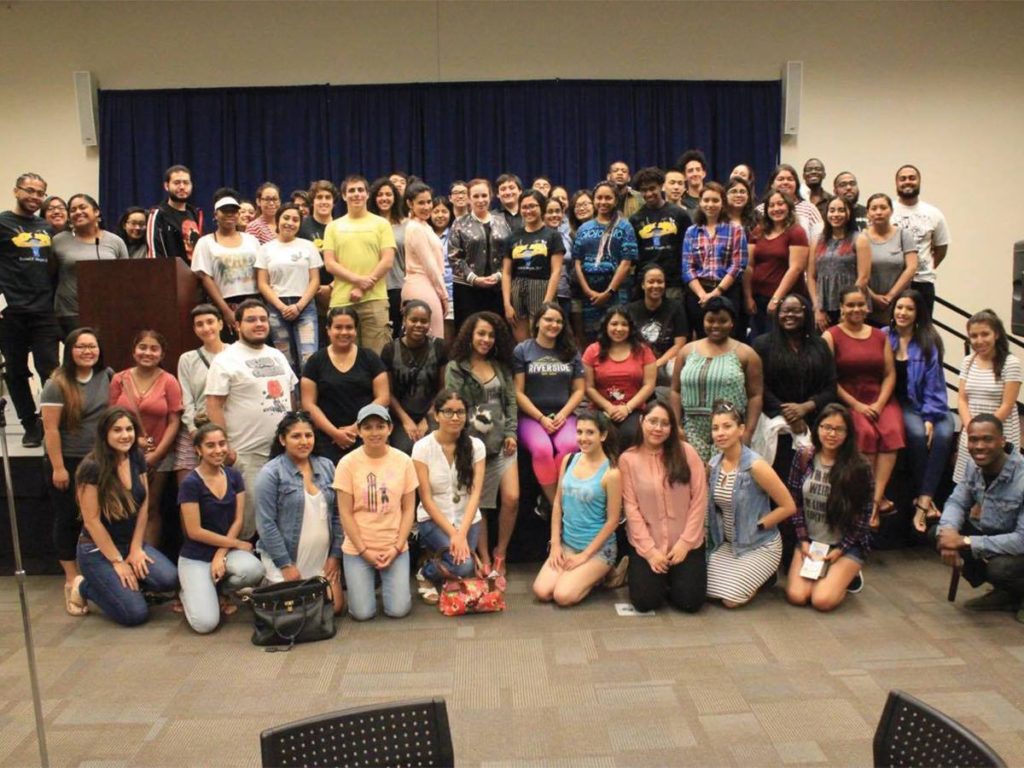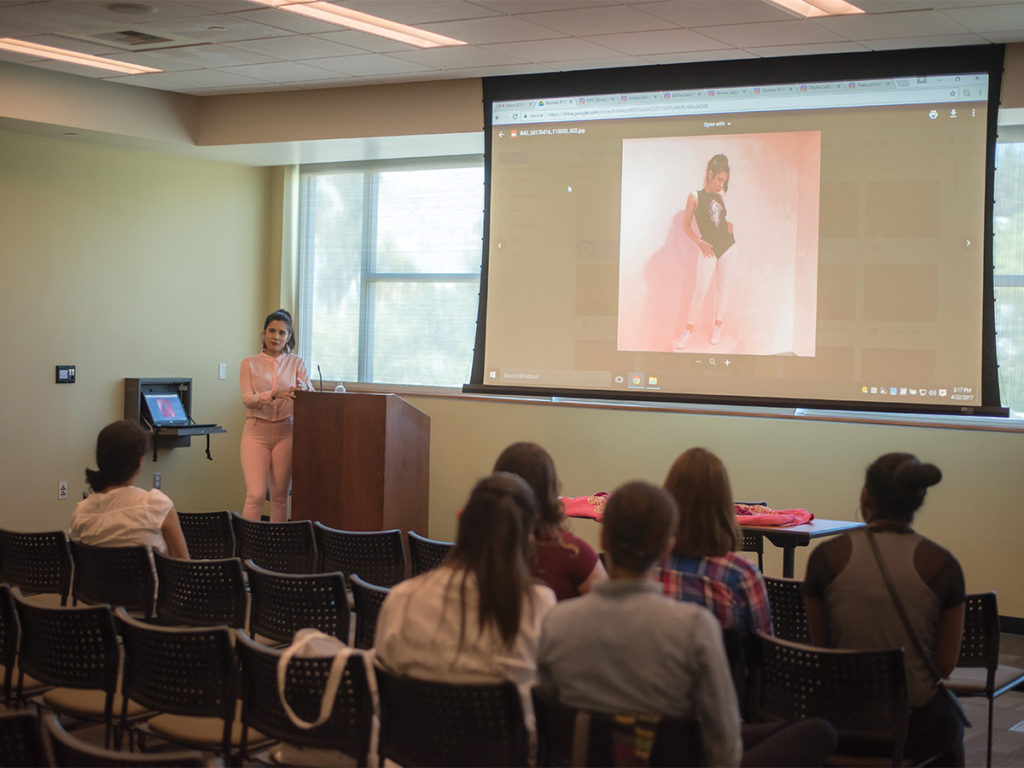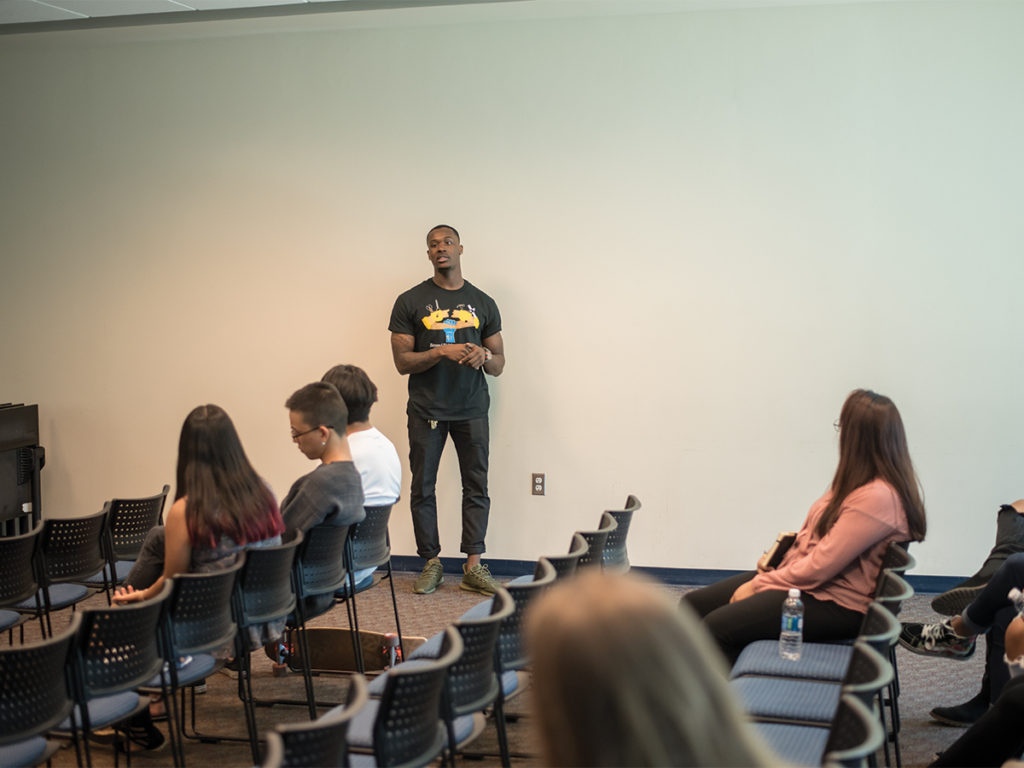
Courtesy of Brittany Bravo
Returning to UCR for another year to shed light on the continuous social injustices within marginalized communities, the second annual Beyond R’Margins Conference, which was founded and coordinated by the ASUCR Office of Internal Affairs Beyond R’Margins Planning Committee, took place this past weekend on Saturday, April 22 from 10 a.m. to 4 p.m. in the HUB conference rooms. The theme for this year’s conference was “The Master’s Tools,” with the tools referring to the devices used for proliferating oppression and discrimination on behalf of those who own the power in American society. The keynote speaker of the event was Alina Fernandez, an active critic of the Cuban government and daughter of legendary Cuban revolutionary Fidel Castro, who resonated a powerful statement on the need to resist poverty and oppression despite the social, economic and personal constraints that are placed on us.
According to second-year public policy major Roy Tongilava, upon discussing how the master’s tools are used to dismantle structures even beyond their own respective communities, “This conference praises the realization that unification of the oppressed is very much necessary in a time like this.” Through a variety of workshops led by UCR students, staff and professors, Beyond R’Margins attendees not only learned why stereotypes, perpetuated living conditions and micro-aggressions continue to leave disenfranchised groups disadvantaged and discouraged, but also cultivated a powerful strife for unity and change through mutual experience and understanding.
The Intricacies of Identity: Privilege and Power
Gerry Medina, student organization advisor at Student Life, opened students’ eyes to privilege and prejudiced targeting by having them list ways they identify themselves on a worksheet. Afterward, he discussed how certain ethnicities and societal classifications correlate with privilege and discrimination, offering an objective basis to the two topics that some students otherwise would not have recognized in themselves. Along with discovering insight on targeting, fourth-year sociology major Reuben Rodriguez enjoyed Medina’s metaphor of the social structure of America being similar to a classroom: “Those in the front were able to be heard by the professor more easily, while those in the back were silenced. It is important to know where you’re sitting in society and to help each other out regardless of where you stand.”
Representation in Media: How the Media Produces Heteronormative Ideals and Its Effects on Viewers
Because of these filters in the media that we have, you don’t get a full, realistic image of the opportunities you might have.
Fifth-year ethnic studies and sociology double major Alyeska Gutierrez taught students about various filters in modern media that impact the way we view ourselves and others, such as the lack of portrayal of lower-income communities in America and the rare encouragement for minorities to pursue careers in the entertainment industry. When she heard the notion of television shows such as “Empire” being such a stand-out because of the depth it endows to a family of black musicians, second-year engineering major Keilani Conner felt a special connection with Gutierrez’s words, expressing, “The first thing marginalized parents tell you is that you’re going to be broke. Because of these filters in the media that we have, you don’t get a full, realistic image of the opportunities you might have.” Second-year media and cultural studies major Pogisa Tau added, “With these filters, you don’t get to see much beyond the white ideology or the ‘black dysfunctional family.’ We should all teach our children — white or black — to take careers in the arts if we want or get the opportunity to.”

Jimmy Lai/HIGHLANDER
Piel Sagrada: Unpacking the Feminist Body of Work
Fourth-year art major Ambar Osorio stepped beyond the usual comfort zone of the classroom and revealed a collection of her artwork intended to reclaim the female body from the societal stigmas that have been placed on them. Much of her artwork, which she projected from her Instagram page, were reworkings of the female nipple, such as a necklace with nipple beads and furniture that resembled the body part. “There is no difference between the female nipple and the male nipple. They are just different types of skin, but there is no gender or sex attached to it.” Related to her artworks being posted on her Instagram, she mused the idea of social media impacting the way we view fine art and how it will impact art history in the future. To spread her encouragement of intersectional feminism, since she believes that the struggles of women are shared with those beyond the gender and sexuality realm, she has led various workshops on campus, such as Vagina 101.
Partisan Redistricting and You
Fourth-year political science major Marc W. Hoffman educated students on the causes and consequences of racial redistricting. He demonstrated the definition of redistricting by projecting an image of North Carolina’s former 12th congressional district before the Civil Rights Act of 1965, which outlawed discriminatory voting practices such as gerrymandering and literacy tests. Before this legislation, the district was strangely shaped and had an odd, thin, cylindrical extension. Then, he revealed its shape after the Civil Rights Act of 1965, which was far more square and uniform and commented, “When there are groups in power, there are going to be partisanly engineered districts … and politics will be engineered to reach to the tilt by gerrymandering.” Although largely made illegal by civil rights legislation of the 1960s, the consequences are still eminent in modern society, the most impactful being the “perpetuation of the cycle of minorities being prevented from striving for political goals.”

Jimmy Lai/HIGHLANDER
There is Nothing Minor in You
Fourth-year business administration major and host of the conference Dalshawn Boson led his own workshop analyzing the term “minority” and its racial implications that often go left unnoticed by people who both do and do not identity as being a member of one. He first asked people what ideas come to mind when they hear the term “minority,” and much of what was given as a response on behalf of the audience was derogatory and negative. Boson ardently defied all of these connotations, stating, “There is nothing minor in us. We are the near majority of the nation.” Establishing an intuitive outlook on the undertones attached to the word “minority,” Boson reasoned that much of what we feel when we hear these words are embodiments of the “master’s tools” that aim to “legitimize myths and maintain hegemonic power. We internalize these notions of lesser importance and begin to internalize stigmas about other communities as well.” The workshop was very interactive, with numerous students being allowed to chip in and even alter the direction of the discussion, such as when a female student shared a story about a neighbor doubting she could fix a TV because she was female and subsequently led a conversation on microaggressions.
Islamophobia and the Racialization of Muslims: American Attitude Towards Muslims
Political science graduate student Stephen El-Khatib objectively discredited Islamophobia in America with a series of statistics. He shared the fact that “an estimated three million Muslims live in the US … 344 have been involved in violent extremism” and that as of this year, hate crimes against Muslims have soared to post-9/11 levels. Reading a passionate anecdote from a CNN article titled “The secret costs of Islamophobia,” El-Khatib recited a series of atrocities that have been committed against Muslims in America, such as severed pigs heads, urine, feces and bacon having been left on the grounds of American mosques. El-Khatib expressed perhaps the takeaway factor to the ignorance of and hatred toward Muslim-Americans and all marginalized groups — a lack of personal experience and connection — with him revealing, as founded by the Public Religion Research Institute, that “more than six in ten Americans have seldom or never had a conversation with a Muslim.”








